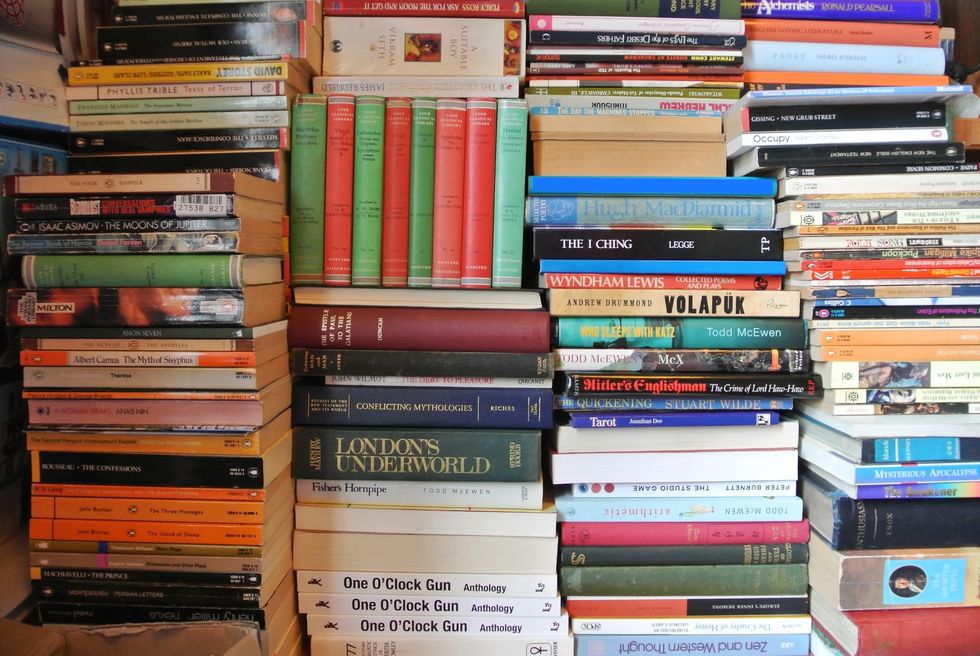It's 2018 and although we claim to have been evolving as a society and growing and become more accepting of others, we still have a banned book list, and it seems to be ever growing. The more people complain about being offended by everything, there is an increasing number books being banned.
When I first heard of the banned book list, I thought it was just another joke, like the "ball-less soccer sport" and countless other jokes people shared. I had seen a link on Twitter of a banned book list in a school library in Mississippi. After looking at the list and the reasons for the bans, I was shocked, I was in awe, and I was angry.
Below are some of the books that are featured on the banned books list provided by the Banned Books Week as well as the Mississippi school library. These books just so happen to be some of my favorite works of literature, and I shall continue reading them, despite their "notoriety."
1. "To Kill a Mockingbird" by Harper Lee.
This book was banned because the language made readers uncomfortable, which was kind of the point behind the constant use of the n-word by Lee. That offensive language was commonly used in small towns and during that time, but readers of today don't quite understand the importance of reading this book. They need to experience the kind of racism that these folks had to experience.
2. "Their Eyes Were Watching God" by Zora Neale Hurston.
Banned for its sexual content, Their Eyes Were Watching God was a story about the hardships a middle-aged black woman had to face while living in the swamps of Florida during the 1930s. While she did have three different men in her life, Janie Crawford recalls how she got to this point in her life, and the struggles she endured to make it all the way back to her home in Eatonville. Although the story is full of rich detail and heavy accents, this banned book was viewed as "too sexual" for young readers.
3. "The Adventures of Huckleberry Finn" by Mark Twain.
For decades, this book written by Mark Twain has been challenged by readers and critics alike for its "offensive speech" and constant use of the n-word. Twain's book is considered "racially insensitive," which again, is the exact point of his writing. He wanted everyone to see how poorly black people were treated, and he wanted readers to feel their discomfort through his writing. Another issue was the adventures surrounding the young Huckleberry and the slave, Jim, which some readers considered uncomfortable, and many of their adventures dealt with violence, death, and crime.
4. "Fahrenheit 451" by Ray Bradbury.
A book about banning books, written in a futuristic American society, this classic by Ray Bradbury seems to be the foretelling of books and literature in our society as we know it. In this world, books have been banned because writers tried to avoid offending anyone, and soon all books began to look the same and lack any difference, so they became banned altogether. Now, in today's day and age, this book has been altered by a middle school in California, blacking out all the "hells" and "damns" mentioned in the book. It has been said that the book "went against the objectors religious beliefs."
5. "The Scarlet Letter" by Nathaniel Hawthorne.
In 1852, the crowds were outraged by Hawthorne's work, with some critics claiming he should have been "less friendly" to the book's main character, Hester Prynne. Flash forward to today, and the book is still banned in many places for its "sinful and conflicting ways" within certain communities. In 1977, it was said to be "pornographic and obscene." A banned book, despite the sexual speech or content, or lack thereof, but a true classic, nonetheless.
It's so sad to see that society can't accept literature, especially fiction, as just that- works of fiction. Many of these classical pieces represent the times in which they were written, reflecting the speech and common thoughts of those that lived during those periods. If we have to continue banning books for their so-called offensive nature, we are no better than those that have burned and banned books in the past.



 StableDiffusion
StableDiffusion StableDiffusion
StableDiffusion StableDiffusion
StableDiffusion Photo by
Photo by  Photo by
Photo by  Photo by
Photo by 
 Photo by
Photo by  Photo by
Photo by  Photo by
Photo by  Photo by
Photo by  Photo by
Photo by 












